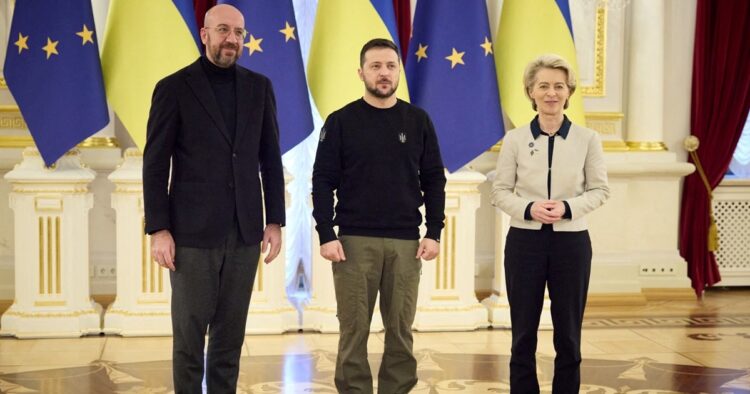The European Union (EU) leaders made a significant decision to start talking about Ukraine becoming an EU member. This is a major boost for Ukraine in its ongoing struggle against Russia’s invasion. Even though actual membership might take a long time, it brings Ukraine closer to its goal of aligning with the West and moving away from Russia.
The decision was made in a bit of an unusual way. Hungary’s Prime Minister, Viktor Orban, who usually likes Moscow, agreed to leave the room while the leaders of the other 26 EU countries decided on Ukraine. This move was crucial in bypassing Hungary’s objections.
The decision is a big deal for Ukraine, especially since its counter-offensive against Russia hasn’t been very successful, and the US hasn’t yet secured a $60 billion aid package for Ukraine. It’s a tough time, and this decision from the EU is a significant political boost for Ukraine.
Germany’s Chancellor, Olaf Scholz, played a key role in convincing Orban to step out of the room, making way for the decision. The leaders also agreed to start talks with Moldova about joining the EU and granted Georgia the status of a membership candidate. They even decided to begin talks with Bosnia once it makes certain political reforms.
However, there’s still a decision pending on giving Ukraine 50 billion euros in financial aid. Orban had issues with this plan too, but the EU leaders were discussing it.
Orban had objected to Ukraine joining the EU, citing corruption and other problems. Even after the decision was made, he stuck to his stance, calling it an “irrational” and “inappropriate” decision. He mentioned that Hungary chose not to block the decision, as 26 other countries were in favor.
In the midst of all this, Ukraine, with its large size and a population of 44 million, poses unique challenges for EU membership. The actual talks will take years and won’t start immediately. Before that, the EU needs to agree on a framework for the talks, and this will require another unanimous decision.
Many EU leaders had warned that not agreeing to start negotiations would be seen as a victory for Russian President Vladimir Putin. Some leaders, like the Belgian Prime Minister, suggested that Orban should keep quiet if he’s part of the decision, even if he disagrees.

















Comments